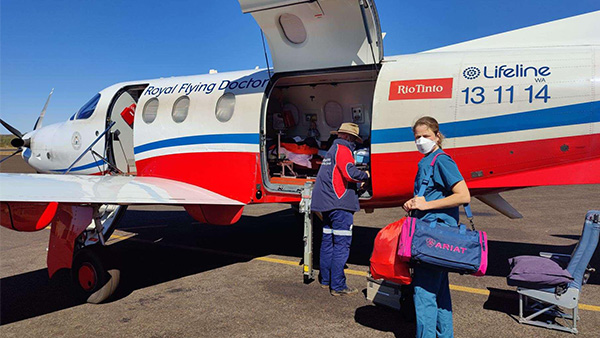“Ultimately, the course reinforced and refined change to my own practice and my capacity to contribute to wider change, not as a leader, but as an agent of First Nations voices.”
Dr Adeline Gabriel, a Doctor of Medicine (MD) graduate, pursued the Specialist Certificate in Empowering Health in Aboriginal Communities to serve First Nations' Members in remote Australia. Now a Resident Medical Officer at Alice Springs Hospital, she applies the practical knowledge gained from this specialised certificate to positively impact the community’s well-being.

-
Why did you decide to study at the University of Melbourne?
I chose to study the Specialist Certificate to extend my Doctor of Medicine. I intended to work in remote Australia and, although I had received formal cultural competency education in my course, I felt ill-prepared to serve First Nations’ members of these communities. Crucially, the course was entirely First Nations led. It was prioritised learning through interpersonal relationships. The course welcomed me as a non-First Nation’s student to listen and learn from my peers and teachers a reformed, positive, paradigm concerning First Nations health.
-
What do you like most about your studies at the University of Melbourne?
First Nations’ Health in Australia is besieged with complex, and often misrepresented, cultural, historical and political factors. Current policy, driven by our dominant power structures, is markedly ineffective at improving health outcomes for First Nations’ Australians. The Specialist Certificate offered an evidence-based solution to this, promoting self-determination and renewed respect for First Nation’s knowledge. Ultimately, the course reinforced and refined change to my own practice and my capacity to contribute to wider change, not as a leader, but as an agent of First Nations voices.
-
What kinds of work integrated learning, practical experience or academic enrichment activities did you participate in your degree, and how did they impact your development?
Through the Specialist Certificate I was able to undertake placement at the Rumbalara Health Service in Shepparton and Wurli Wurlinjang Health Service in Katherine. These Aboriginal Community Controlled Health Organisations (ACCHOs) are the epitome of self-determined, community tailored medicine.
-
Where are you currently working and what is your position title/role?
I am working as a doctor at Alice Springs Hospital.
Currently I am in the Emergency Department, where 80% of our presentations are from Aboriginal patients. I enjoy how radically we can adapt our medical practice to meet the specific needs of our patients here. I also enjoy learning from doctors who have decades of passion and experience in this space to draw on. Most of all, I enjoy learning from my patients regarding their lived experiences, values and knowledge.
-
What advice do you have for future and current students who are interested in studying this course and pursuing a similar career?
Get in touch with the teaching academics, or reach out to the course coordinator. Don't be shy, have an open and constructive conversation about whether the course will offer something for you and whether you will have something to offer to the course.
-
What inspires you?
Old gumtrees. The ones that get burned, struck by lightning and lopped and keep growing branches, burls and scars while supporting innumerable lifeforms.
Learn more about the Specialist Certificate in Empowering Health in Aboriginal Communities